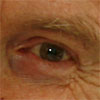 |
The Mind's I — Gene's I — See? ICGG, He C me, not? Goof Gloop! Cloop ergo not not. |
Godblogs
On Religion from Sam Harris to Bede Griffiths
Draft preprint, 2009
PDF: 266 pages, 1.1 MB
By Andy Ross
This book is based on a lot of old blogs about religion and related themes. The blogs were first posted on the web in 2007 and 2008. I have added value to my efforts by stitching them together with interlocutions to form a running conversation and tidying them up editorially for the record. The result is a web-age reincarnation of a classical Socratic dialog.
Contents
Introduction
God and Sam Harris
God and Others
God and I
God
and Bede Griffiths
Panpsychism
Panpsychology
References
Excerpt:
Pansychology
A Polyphonic Master Class
My Koan
 |
The Mind's I — Gene's I — See? ICGG, He C me, not? Goof Gloop! Cloop ergo not not. |
— AtheEisegete
Voluptuaries of the enlightened mind will doubtless recognize the The Mind's I
as a genially assembled anthology of readings edited by Douglas Hofstadter and
Daniel Dennett, both of whom loom large in my personal pantheon, an anthology
now over a quarter-century old. As for the "Gene's I" that dashes in to qualify
the seeing eye, readers of panpsychology will naturally discern the genocentric
trace of Goof, the God of our fathers, the trace that betrays the divine
sustenance behind the Dawkinsian demagogery for selfish genes.
So much for line 1. The acronymic "ICGG" is a texted analog of "I see GG" —
where GG is of course the aforementioned personification Gene Goof of the
Abrahamic attractor for the gene-driven zombies who shuffle behind the monothee.
And "He C me" makes eminent sense in the orthodox dogma of the great "I am" who
indeed notoriously sees me and my sins in the terms of the central dogmap we
call the Bible. The "not" is the Gordian knot of inwit, always negating manifest
truth in order to test its awesome power. Do He or do He not? That is the
question.
Now, here comes the logical crunch. A G-loop is of course a Gödelian loop, as
served up to a thirsting world by Douglas Hofstadter almost three decades ago in
his report on the eternal golden braid. In my new instantiation, the "Goof Gloop"
is the I-see-He-see loop, with a "not" twist to give it that Gödelian agenbite
that prompts the AtheEisegetean inwit to pull a wry smile, and naturally
triggers a paradox that may not stand unchallenged.
The loop that apparently may not without risk of dizzying Gödelianism be allowed
to stand unchallenged is a "Cloop" — a see-loop — where the I-see-He-see variant
is a hottie, so to speak (assuming you are ready to accept that the self of Gene
Goof is none other than your very own self-alienated self peeking through the
mystic mist at its own gene-rooted self), and the notted version is, well, a
nottie. (Apologies to Paris Hilton, who never asked to be dragged in this ironic
fashion into a New Age fragment of hot-doggerel.) The "ergo" word is of course
Latin, a deferential nod to Descartes, whose Cogito ergo sum — I think therefore
I am — launched us all into the Age of Me. Finally, the conclusion of the
reductio ad absurdum triggered by the Gödelian construction is of course the
negation of the not-twist.
A pedantic aside may assist the more earnest seeker here. Devotees of the
intuitionistic brand of logic will insist that not not A is not yet A, not yet
the assertion of that doubly negated proposition. Only a classical thinker would
accept that final affirmation. So we cannot uncontroversially affirm the
see-loop in all its positivity. The shadowy intuition of doubt clouds the final
reciprocity of the seen seer.
What drove me to this extremity of cryptic logicism? A hint may suffice. Anyone
who knows the traditions of that august newspaper known to Americans as the
London Times knows too that its celebrated daily crossword is second to none.
Its cryptic clues are no less obscure and convoluted than my loopy
tetragrammaton. And I, yours truly, bearer of the depicted eye [my forum
avatar], did spend some of the best hours of my higher schoolyears puzzling with
my colleagues over the said crossword. Skilled devotees of that chequered
mandala can do their daily puzzle in minutes, but this skill is as finely honed
as that of the solver of the Rubik cube. The devotees who polish it off in the
minutes they spend each morning in the commuter trains that daily dock in the
terminals of North London tend to be higher civil servants, Whitehall mandarins,
with Oxbridge degrees in the classics, and deploy a mastery that transcends my
modest attainments in the puzzle stakes.
AR I still have some work to do on this manuscript.
